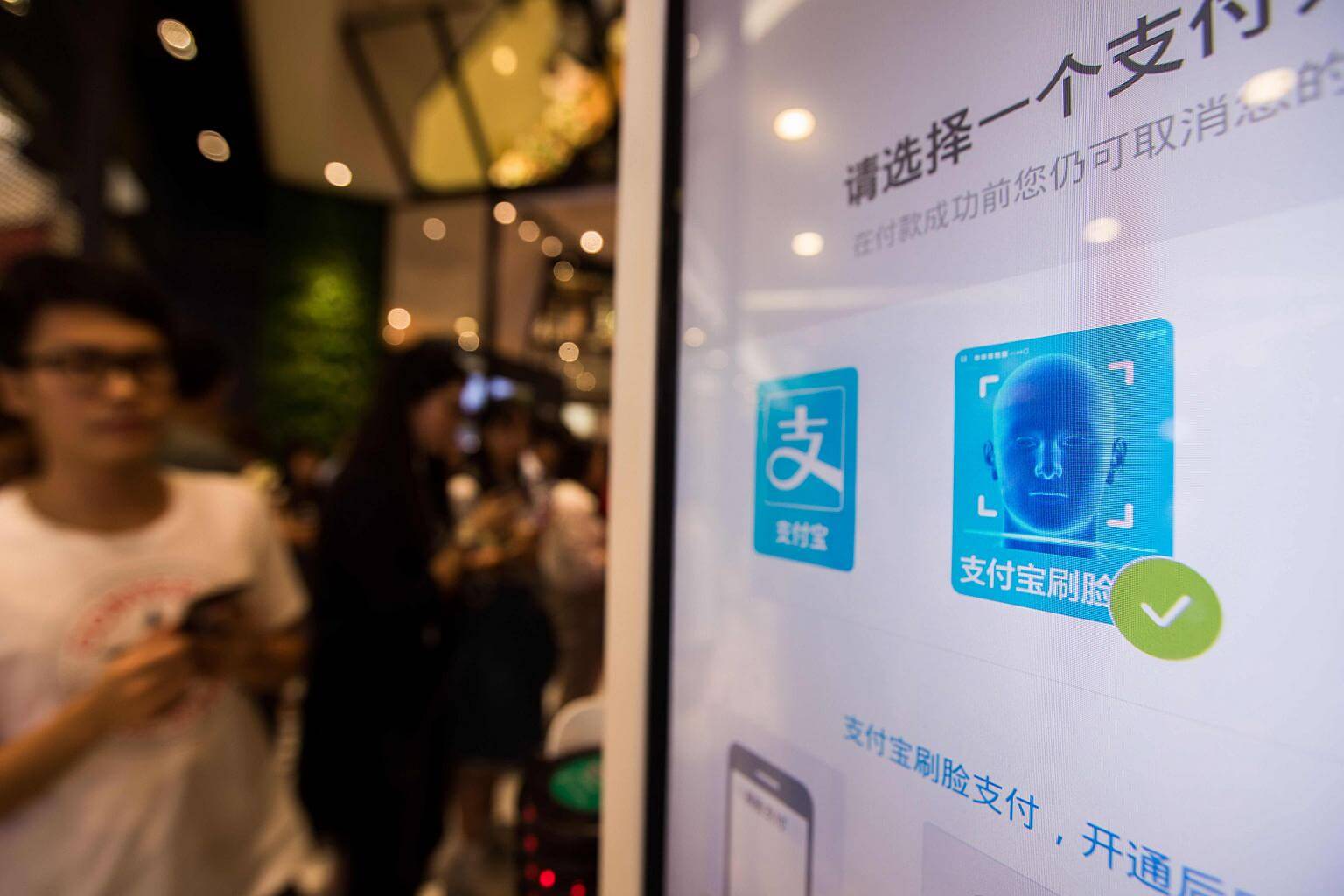China building world's most powerful, 1.3 billion-person facial recognition system: Reports
Sign up now: Get insights on Asia's fast-moving developments

A payment icon is seen on the screen of the Smile to Pay system at a KFC fast food restaurant in Hangzhou, China.
PHOTO: AFP
HONG KONG - China is building the world's most powerful facial recognition system which aims to identify any one of its 1.3 billion citizens within three seconds, reported South China Morning Post.
The goal is for the system to able to match someone's face to their ID photo 90 per cent of the time.
The project, launched by the Ministry of Public Security in 2015, is under development in conjunction with a security company based in Shanghai, according to SCMP.
The daily reported that the 1.3 billion-person facial recognition system is being developed by Isvision, which told SCMP it had won the contract last year.
The company declined to provide details.
Isvision security cameras with facial recognition capabilities were first deployed in Tiananmen Square as early as 2003, according to the company's website. Similar systems are in place in Xinjiang and Tibet.
The company's systems are connected to the police database of suspects, capable of recognising and tracking potential targets in a large crowd.
Experts have said the new nation-wide system is being developed for similar reasons.
The giant system can be connected to surveillance CCTV networks and will make use of cloud facilities to connect to data storage and processing centres distributed across the country, according to people familiar with the project.
But the project, said the SCMP, faces formidable technological hurdles given the technical limits of facial recognition technology and China's large population base.
Fan Ying, a researcher at Ministry of Public Security's population management research centre, said the project team has encountered "unprecedented challenges" due to the government's high demands for speed and accuracy.
Tests carried out using the facial recognition algorithm developed by Tsinghua University, a world-leading institute in this field of research, achieved only an accuracy rate of below 60 per cent. This is lower than the 88-per-cent target.
There are also concerns about possible security breaches and privacy issues.
Professor Cheng Mingming, a professor of computer science at Nankai University in Tianjin, said that despite the scale of the project, technological advances meant that all the information could be stored in small, portable drives - which raised the risk of data theft.
He said a palm-sized commercial hard drive nowadays could store 10 terabytes or more of data and you could "pack it in a suitcase and board a flight".
"If the facial data and related personal information is stolen and put on the internet, it will cause big problems," Prof Cheng told SCMP.
At present, there are similar systems which operate on a smaller scale. They include the police's database of criminal suspects and identity databases at the city or provincial government level.
Chen Jiansheng, an associate professor at the department of electrical engineering at Tsinghua University, said the system would have to be built on an unprecedented scale because no country had a population as big as China's.
He is a member of the ministry's Committee of Standardisation overseeing technical developments in police forces.
The size of the new database, which stores portrait information and detailed personal information of each and every Chinese citizen, does not exceed 90 terabytes, according to technical documents on the ministry's website and a paper written by police researchers.
Chinese consumers are already experiencing facial recognition technology in their daily life.
With a smile or blink of the eyes to a camera, students can now enter their university halls and travellers can board planes .
In early September, Alibaba's Ant Financial unit also launched face-based payment with KFC.
Some public toilets in Beijing also use facial recognition so that the automatic dispensing machines will deny toilet paper to people who ask for it more than once within a given time period, according to Chinese reports.


